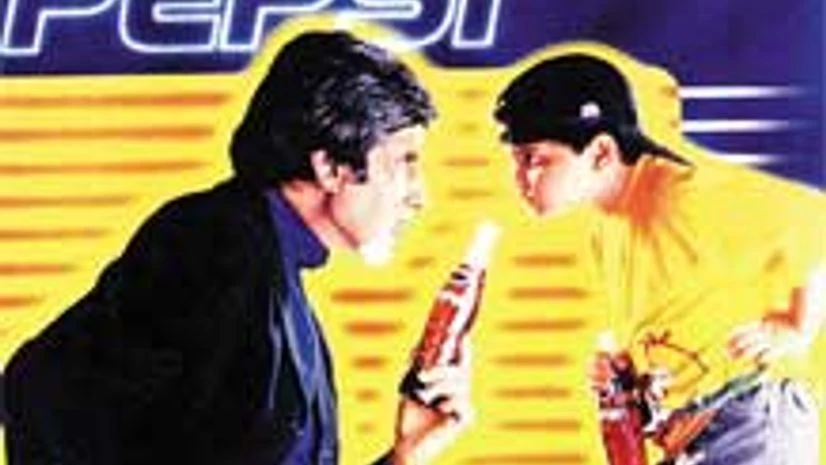The Corporate Affairs Ministry recently unleashed radio ads urging the public to not go for investments based on celebrity endorsements. It is no surprise that this development follows former Pepsi brand ambassador Amitabh Bachchan's stance taken a few days ago - that he stopped endorsing Pepsi after a Jaipur school-girl called it "poison".
This is not the first instance of a celebrity-brand disconnect. Scarlett Johansson recently stepped down as the global brand ambassador of anti-poverty activist group Oxfam after protests because she featured in Israeli company, Soda Stream's commercial. Operating in an Israeli settlement in the disputed West Bank, a factory like Soda Stream's is considered to be illegal under international law.
Former US President Ronald Reagan was the brand ambassador for Chesterfield Cigarettes long before he became the Governor of California, let alone the President of the US. Ironically, Reagan never smoked cigarettes. Just in the way one would not expect Sunny Deol to wear Lux Cozi or Salman Khan to walk around in Lakhani chappals.
More From This Section
The repercussions of an endorser's apathy towards a brand depends on the strength of the brand itself. "Usually a brand endorser is added to the mix to boost the appeal of the brand, but an adverse remark can be damaging for a strong brand, and even fatal for a weak brand," says Sameer Satpathy, executive vice-president and business head, Marico India.
A small brand would get badly hit by statements like the one made by Bachchan, unlike a larger brand that is on equal footing with a well-known celebrity. "If Shah Rukh Khan were to say something unflattering about Tag Heuer, it won't matter to the brand. But if he lashes out at a real estate brand he endorses, that would hurt the brand," says a brand analyst by way of explaining.
Brand's recourse
The negative fallout for the brand could be brickbats in public fora such as social media as in the Pepsi-Bachchan case. Competitors could take advantage and start wars at the distributor level, amplifying the bad word-of-mouth.
"I am sure Pepsi will take that extra effort during the upcoming IPL to negate the effect of Bachchan's comment," says Prasanna Khare, associate vice-president - brand custodian, Percept Talent Management.
Anirban Das Blah, CEO at talent management firm KWAN, who has handled many a star endorsement, says that "perspectives can change on things like trans-fat in chips etc." over time. Brand consultant Samit Sinha of The Alchemist says, "He (Bachchan) has made a statement not only against the brand but also the carbonated drinks category as a whole."
With cricket and Bollywood's far-reaching impact, fans of a celebrity could turn away from a brand for life, even as others take it with a pinch of salt.
Pinch of salt
Bachchan has been associated with PepsiCo India since the late ‘90s, when he endorsed PepsiCo’s Mirinda Lemon. He came aboard for flagship brand Pepsi in 2002 and endorsed it till 2005. The endorsement fetched him Rs 24 crore, leading a segment of the audience to be skeptical of this new-found righteousness.
"I would have respected the man (Bachchan) had he said that he would donate the amount he received from Pepsi to charity, or even give it back to the company," says an FMCG advertiser. Advertiser Manish Bhatt, founder director, Scarecrow Communications, says, "I don't think he (Bachchan) should have made the statement public. It should have stayed a personal opinion." A marketer says if one were to reject an endorsement offer outright as unhealthy, then it is much more credible.
The endorser's ethical dilemma in case of a change of heart comes from the fact that she has been privy to competitive data about a brand that might not be in the public domain. Moreover, the endorser or ambassador is a person who vouched for the product's quality at one point. "Internationally, people are held very accountable for what they endorse. Things like this can even harm the reputation of an actor," says Sumanto Chattopadhyay, executive creative director, O&M, South Asia.
Blurred role-play
Brand consultant and co-founder of Chlorophyll, Anand Halve says that endorsing has been reduced to advertisers buying the popularity of an ambassador. "The criterion of choosing the celebrity is the 'popularity' an advertiser can buy with his budget, not the endorser's credibility or relevance." There are several instances of celebrities plugging fraudulent products such as A-listers featuring in the commercials for the financial services company, HomeTrade, a few years ago. "There seems to be no mechanism to hold them accountable," Halve says.
Reality check
A celebrity endorser is a double-edged sword, and the partnership requires implicit codes of conduct. Not just about criticising a brand but also what happens if the celebrity falls out of the public favour a la Tiger Woods or Lance Armstrong.
Brands will now do a reality check of the fineprint of endorsements in the aftermath of Bachchan's comment. A mandatory clause that disallows negative publicity even after the endorsement period is over could come in. A segment of advertisers are even hoping for a law to make the endorser more accountable.

)
